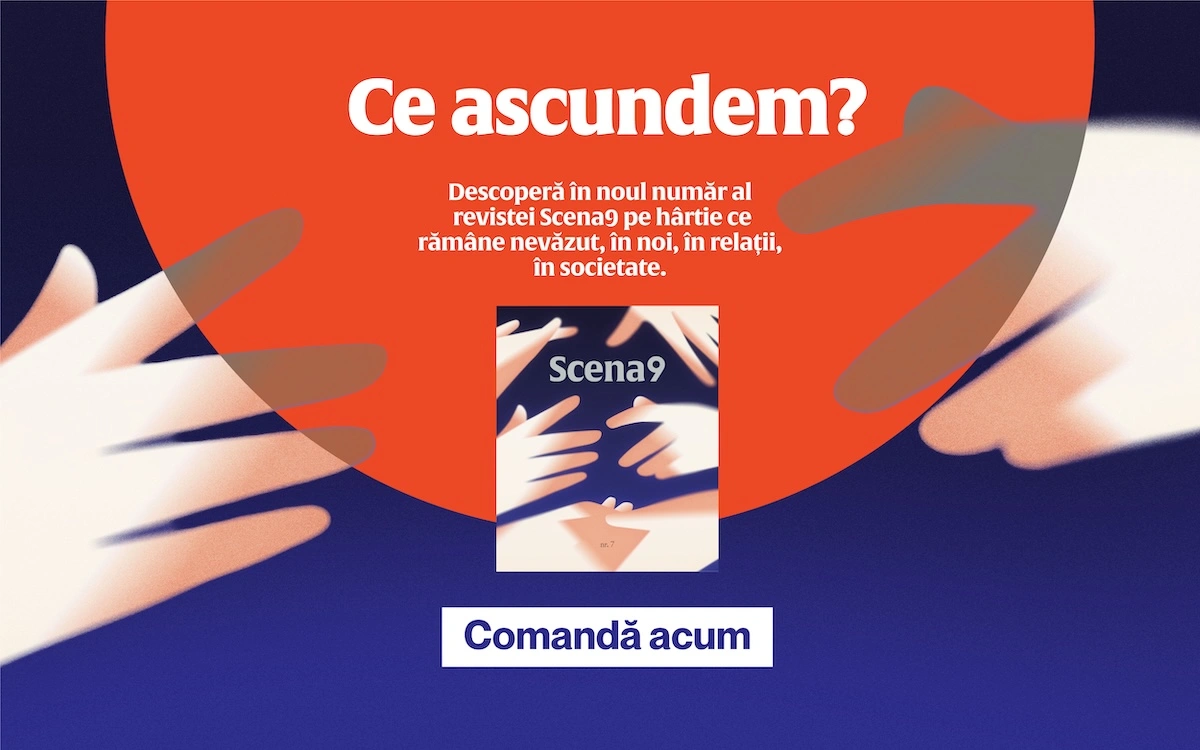Earlier this month, the Control club in Bucharest celebrated its 10th anniversary with two Son Lux concerts on the same day - both sold out. On an early autumn day, we met Ian, Ryan and Rafiq in a sunny room, and for an hour we talked about ageing in music and art as work, about friendship and ways of getting back one's hope in troubled times. Later on, during their concert, we shed our skins and dove into the soul of humanity. We entered the doors Ryan, Rafiq and Ian drew before us and let them show us how can one feel ”home, even if you've never been there”.
Son Lux has managed to bring together bits of pop music and bits of contemporary classical, electro, but also post-rock and hip-hop, deconstructing and reconstructing sounds, in order to perpetually test their limits and possibilities. The outcome is one of the most surprising and emotional kinds of music that are being made at this moment on our planet. Which is great, given the fact that Son Lux first popped up into the mind of a single person: Ryan Lott (39), American composer, performer and singer, with a particular interest in bringing together experiment and experience. This year, Son Lux celebrates its 10th anniversary, which mean 5 albums (+ an OST and about 7 EPs) and millions of fans worlwide. But Ryan is no longer by himself. Since 2015 he has brought along on stage two fellow musicians: guitar player Rafiq Bhatia (31), with a background in neuroscience and jazz, and drummer Ian Chang, an apparently shy and delicate person, who breaks his drums (and our hearts) during their live shows. All three of them also have their own musical projects and pursuits, all of them are both artists and producers and they recorded their last Son Lux album - Brighter Wounds (City Slang, 2018) - together. Naturally, we began our interview by talking about friendship.
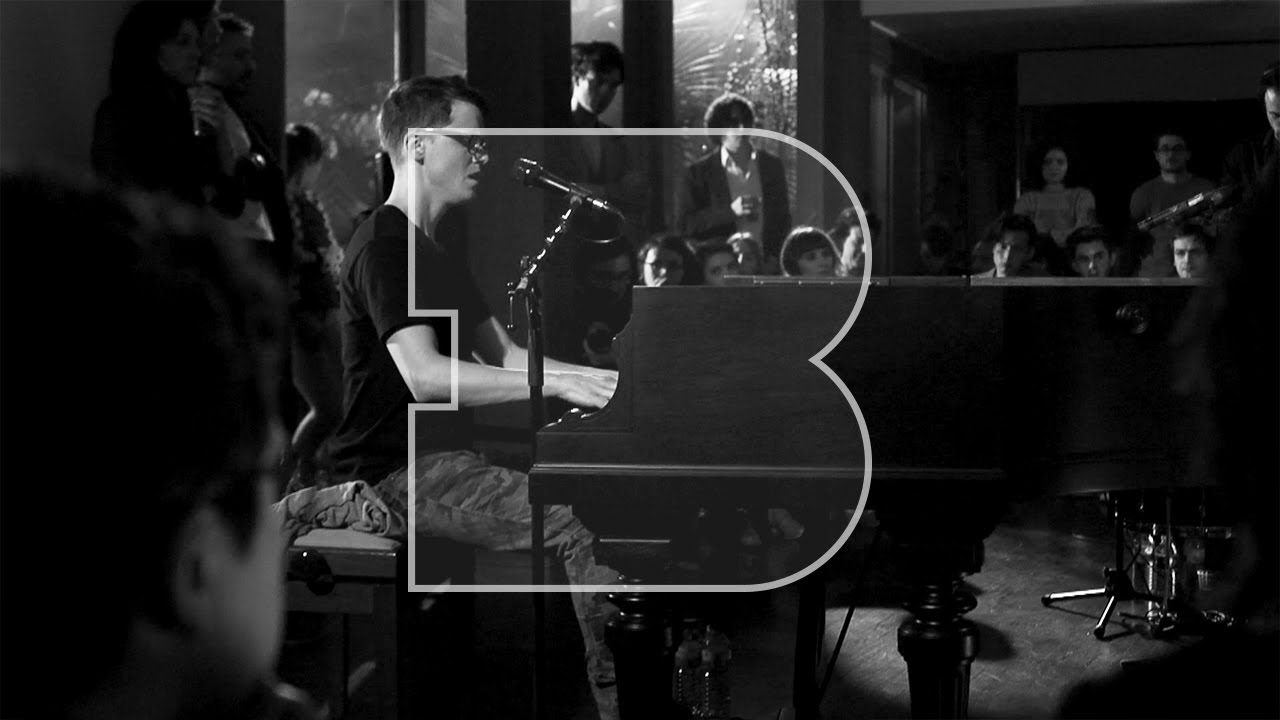
Luiza: It's been a couple of years now since you've been playing together. Could you tell us what each of you admires about the other two?
Ryan: Mm... wow, that's a heavy question.
Ian: Now the two of us leave the room.
Luiza: Like a therapy session.
Rafiq: More like an intervention.
Ryan: Wow...
Ian: I guess the first thing with Ryan is that, I think Rafiq and I both agree, that we learned a lot from him. And so one of the things that I really appreciate and admire is that he's very willing to teach and very willing to share, which a lot of musicians who have or had solo projects are not willing to do. We've both learned a lot about how to, you know, technical things, in terms of producing music and stuff like that, he's a master. But also just like he's very encouraging of both of us to do our own things musically and find our own voice. The past few years playing together have been super formative for me in terms of our own creative development. That's the cool thing about Son lux, I think, that we are all able to develop as a group, but also individually. Musically and personally. And Ryan is just also a super super super kind, open minded, open hearted human being.
Rafiq and I, we kind of came up in this situation together in a way, so we've been able to lean on each other in many situations. Both within the context of Son Lux but also in life, we all lean on each other. We definitely all feel like brothers, even though we don't look like it.
(Ryan leaves the room for a bit.)
Ian: Rafiq is very different than me in a way that I've been able to learn a lot from and look up to, and this goes to Ryan as well, Rafiq is pretty intense, integrity is really really important to him and also being really deliberate about how he does things in everyday life, but also creatively. Whenever he makes something, it's not just „Well, yeah, I've made some stuff”, he's taught me to push myself at least to try to be more deliberate and to care more about what it is that I'm doing, which is cool.
Ryan: Yeah, I agree with all that about Rafiq, especially the stuff that while he was out of the room Ian said. One thing that's very Rafiq is always to search for the best version of a thing.
Ian: Whether it's scrambled eggs...
Rafiq: It's not just music, but it goes to other aspects of life, to the things that are maybe the less important things, but maybe also the things that are really important. Another word for that is integrity. He holds himself to that standard as well. He look for it in other things, but also in himself. That's pretty rare.
Ian: And it's rare to be like that and also not be a dick. To not judge other people for not seeking the same thing. You still see people as they are and you are kind and shit.

Ryan: I think about both of these guys that they are also really humble. They're both amazing at the things that they do and amazing people, but there's a humility in that, I think that's what Ian was getting at with Rafiq. Somehow on a root level neither of these guys seem like they think they are the ultimate authority on anything. A lot of people approach life like it's all through the lens of „who I am” and these guys have really an open mind in that way. They both have an intrinsic understanding of their own limitations and that enables them to constantly grow and that's something I admire about the both.
Something that's very uniquely Ian is that he gives everyone the benefit of the doubt. Especially when you share life on the road together that's like a really important thing, to keep the chemistry fruitful. Not just among the band, but the crew, all the people we interact with on a daily basis. Rafiq and I maybe are a little more emotional, up and dow, and I feel like Ian is less subject to letting his mood inform the way he thinks about other people. And that's huge.
Rafiq: Without repeating things that these guys have said about each other too much, because I agree with most if not all of it, I think I'll start with my friend here, who's immediately to my right. I feel like I learned how to tour from Ian, I hadn't really done a lot of heavy touring before I joined this band, I've done a lot of one or two performances that were special in different places, but not living on the road and there was something kind of inimaginable about the way that Ian goes on stage and destroys on the drums, and that comes off... He's maybe the most considerate person I've ever interacted within a professional situation. He's able to anticipate what other people need, he's very good at being aware of what's happening around him and being proactive about it. Seeing that and seeing how far it goes and how important that is (and it's a big group of people and everybody has got to do an impossible task, in a short amount of time), there's something really difficult to describe about how much of an impact that had. I'm still trying to get that first lesson.
I think form a musical perspective, there is something extraordinarily intentional about the way that Ian plays. All of us together have this real interest in rhythm and how rhythm gets expressed, that one of the things that brought us all together in the first place, but Ian has a way of embodying that interest that to my is like.... it's not only extremely rare for the drums but it's extraordinarily rare on any instrument, where he's deciding where time gets split. He's not taking for granted the fact that time is a linear thing. When Ian plays the drums, time goes where he puts it. And that is really one of the things about music that is the most confounding to me, that it articulates reality in a way that defies reality sometimes.

And then my friend Ryan. I feel like I've been really lucky in my life to be around figures who are strong leaders. People who know how to step up to the plate when a lot is resting on them and gracefully see a situation through. There's a lot of pressure riding on that all the time.
Ian: Cause in the context of Son Lux, Ryan ultimately takes the most pressure.
Rafiq: Totally, yeah. And there have been so many situations where I've been really in awe of Ryan's ability to step outside of all of that pressure and... just like the way that’s riding on him that's so much more intense that it is for anyone else. And to be able to zero in on something. I'll give you an example. My girlfriend sings with us sometimes and she was backstage at a performance that we were doing in NY, at the time it was like a really important show of the last album cycle, I think David Byrne was there, just like a crazy night, and we were right about to go on, soundcheck and everything was fine, we were about to play the show and we were just checking to make sure everything works, which we do every night and everything works pretty much every night. Ian gets on stage and his electronic drums are not working. He's not sure he's going to be able to get the settings he needs, we had a back up, but everybody was waiting, the show was supposed to have started.
Ian: There's people in the audience just looking at me, trying to see if it works.
Rafiq: At that point Son Lux had become a band, but even to this day it's like Ryan has so much more pressure than any of us and especially back then, you could add to that. There was a lot riding on that show and it would have been easy for Ryan to be very stressed out. And everybody would have forgiven him for that. Instead, he did this very remarkable thing, which is that he just focused on making sure that Ian was ok. He was just making sure that Ian realized that even if we couldn't get this shit to work, we would still go out there and we would still play our asses off and it would be different, but a great show nonetheless. And people would respond to the intention that we were putting on on stage. Ian was so crestfallen when the show was happening, that to see Ryan putting himself completely aside and just focusing on making sure that Ian knew that it wasn't gonna be the end of the world and that is was going to be cool and I remember Nina turning to me and just being like ”I can't believe that he's able to think like this and act like this in this situation right now”. And that's one of many many memories like that that sticks out in my mind about how Ryan has taught me. As Ian was saying, as he and I had gone on to do more things with our own projects, there have been several times this year, leading a band, having a band on tour, realizing just how crazy it can be, in a single day, thinking you were going to spend a lot of money on the airline baggage fees. These random things that you can't predict pile up. I just keep remembering times when Ryan was undoubtedly dealing with stuff like that and remembering how he conducted himself in a way that lifted everybody else's spirits. And I haven't even started talking about music.
Andra: I suppose you fixed the drums.
Ian: Yeah, it worked out.

Luiza: All three of you are explorers of sonic galaxies, you really experiment a lot, or, in the words of Nick Cave, you push the sky away. What are you searching for in these sonic explorations? Do you want to get somewhere or you don't know? What is exactly what pushes you forward?
Ian: I think there's no clear destination or goal, what we set out to do is make music that's honest and I think what that means, something that unites us all in terms of what we tend to look for when we're in a creative process, is making something that we haven't necessarily heard before, so it feels like it's new, but also, on the flip side, that's still deeply soulful. The goal is to make something soulful. Cause I think sometimes there are examples of music that is super mind expanding, but isn't necessarily speaking to the heart. That's like the two things that matter to us. But there isn't' really a concrete goal, the goal is to be honest and also to stay inspired and to keep that formula burn for as long as we can.
Andra: Speaking of this experimenting, one of the things I like is that you never know how to tag your music. Why do you think musicians are a bit afraid of mixing the genres? Most of the pop music, for example, sounds the same and most musicians and authors usually stick to one family and one genre. How did you come to make this hybrid kind of music?
Rafiq: Well, I can tell you that there's a very entrenched structure of incentives in place to keep all these things separate. Like the whole way that you succeed, in the sense of being able to spend your time making art, being able to feed your family making art, those kinds of very practical things that at the end of the day are important to most people. Just like on a basic level being able to function as an artist, it's very difficult to break free of those constraints because each category has an infrastructure that is so insular and kind of purified…
Andra: A machine.
Rafiq: Yeah, and you have to function inside of that to some extent. Even if you're pushing and banging on the walls, the way that you move through the world and music ultimately is through one of these conduits. For almost any artist, the pressure is so high to find something that wins over enough people and to be able to make art outside of your day job. If you actually get to the point where you are doing that sort of thing. I can see why people don't do it. And I think that a lot of us come from a generation also, like Ryan was really ahead of his time in terms of thinking about these thing, but for Ian and my generation the spread of information was so much more fluid and access was so much easier. Ryan was going to the library and checking shit out. It's like a much more deliberate kind of active approach that was necessary to arrive at this way of being for him. For Ian and I, there was also some amount of hybridity that was just baked in in who we are, and how we had to interface with the world, so being able to see things from different perspectives and appreciate that is a part of what... Personally, what attracted me in music was this idea that you can represent yourself in some way through art and that you can understand others through art and that you could speak to ideas outside of art and raise consciousness about social issues outside of art, but all of these things are not the drivers of the music industry. The gears in the music industry are towards kicking a path and sticking with it. That doesn't really answer your question, but it's an important part that's often overlooked.
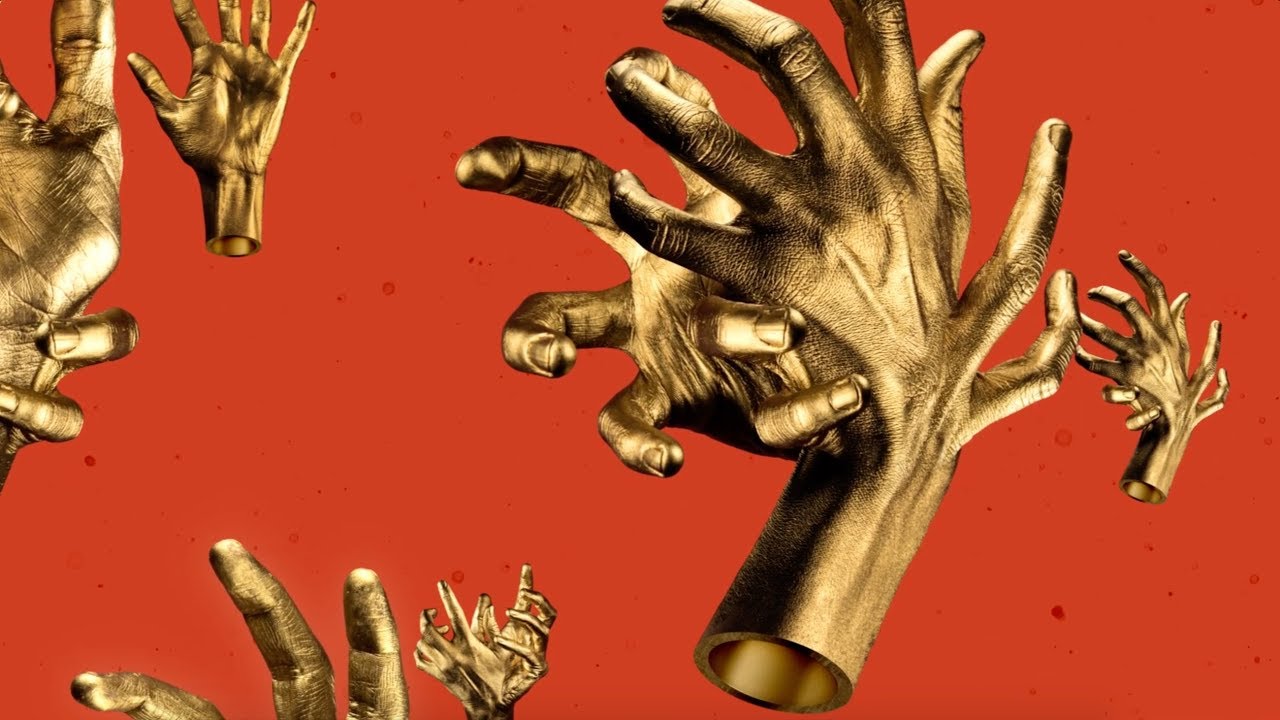
Andra: Speaking of this, I'd like to ask you about music as work. Usually, people only focus on the art part and it's kind of a big taboo to speak of art as work. What are for you the most important issues and problems as workers in music?
Ryan: I love to think of music as work because there's an incredible privilege to be found in hard work. There's an incredible different kind of reward to be found in making art. If you can tip off those two rewards at once, it's a no brainer for me.
Ian: It's a very tricky question, because a music career is not anything like a normal career. Let's say you are in a corporate job where you work for a couple of years at a certain position, you get promoted and maybe leave that job for something more valuable, but you basically keep climbing up. In music it's just like crazy. It's really difficult, because I guess good art doesn't have much to do with what's fair. But at the same time a big issue that's been raised recently is the mental health of musicians. Traveling and working conditions are pretty rough and I think there is a false romanticization of what life can be like as a musician. Even I find myself guilty of this. Recently we did this tour with Kimbra, and in my mind I though She is a pop star basically! But while sharing that bus, I realized that shit was not easy for anyone. Many people think Oh, these people's lives look amazing on Instagram! But pretty much of all our idols' lives are full of day to day compromises of general well-being. I don't know what I'm suggesting instead.
Ryan: But that reality you've just described makes it easier to understand art as work. Because there are these entirely non-romantic aspects regarding your well-being. You're pushed into sickness and injury and all kinds of things experienced in all other kinds of jobs.
Ian: I guess that musicians don't tend to have any kind of protection for that kind of thing.
Rafiq: Yes, it's the original gig economy. People are speaking about this in other areas, such as Uber and shit, but we're like the ground zero for that. It's not just a problem limited to music as work, but it's transforming the reality for more and more people.

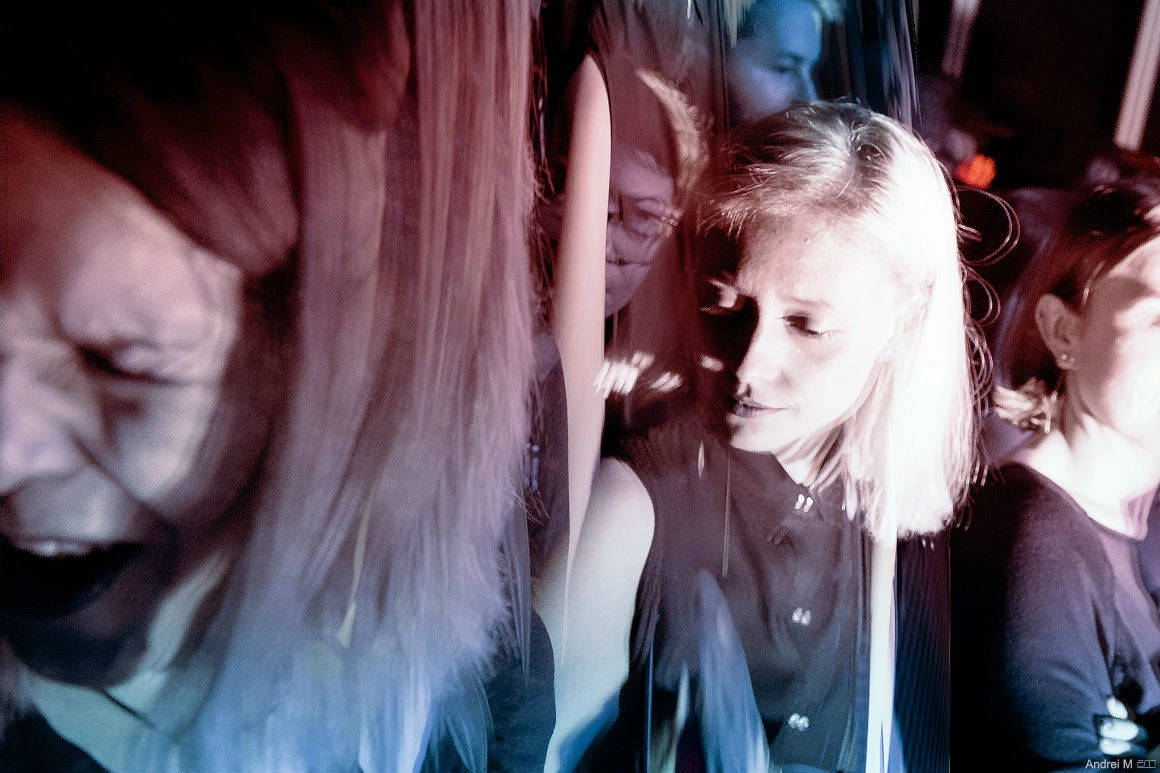
Luiza: This evening Jonathan Franzen has his first public talk in Romania at the biggest literary festival, in Iasi, and I left the festival yesterday to come hear and everybody would ask me Why are you leaving? It's fucking Jonathan Franzen! And I would tell them that I have to see a concert. I was trying to explain to them that I really need the experience of your music tonight, for my personal sanity. Tomorrow we have a big referendum against LGBT rights in Romania, so the atmosphere is pretty tense. I wanted to ask you in terms of music as therapy, what experience do you hope your audience will have at your concerts?
Ryan: One of the things that I like about different kinds of art - not just music - is when I am confronted with the limitation of my own brain and understanding, by glimpsing something past it. I want that for our audience, because I want it for myself as well. I wanna come upon something where I am at the edge of a cliff and there is a chasm between me and something I am perceiving. What is this, how is it happening? Both experiencing it fully, but also not really understanding it. If it's something that I also love, then it's almost like arriving home in a place you've never been before.
Rafiq: There's this quote from Leo Smith, who's not only an amazing human being, but also a pioneering experimental composer and trumpet player. He was asked a similar question at some point and was talking about how, for everybody who is in the audience at a concert, there are these burdens of daily life. Things that are chaining you to the present. And from his perspective, a musician's job is to see if just even for a moment you can free the listener from those strictures and confines. And the moment when they're in, if you allow them to step outside of it, and experience and contemplate reality on a less limited time scale, then you've done your job. Ever since I've heard this, on some level I've been trying very hard to follow that advice. I don't think it happens all the time, but that is the goal.
Ian: The third element that is another powerful thing: you're in a room full of strangers and yet you feel like you're all together. Especially during difficult times, you feel we're all in this together. There's like an empathy thing that happens between us on stage, also between us and the audience, and between the audience. I think that music can embody this feeling of togetherness.


Luiza: Where do you find your reserves of hope in this fucked-up world?
Ian: Pictures of cute dogs?
(Everybody LOL)
Rafiq: My Twitter feed has been so dark for so long, that I recently followed these two accounts that are run by the same people. One of them is WeRateDogs and all the dogs get over a 10 out of 10. The other account is called Thoughts of Dog and I'm gonna read the last tweet:
i had a long talk. with my fren. about how to spot. a fake ball throw. the optimal strategy. is to follow the ball. with your eyes. instead of your heart
(Everybody LOL)
This is like a joke answer, but also kind of serious. I guess the biggest challenge people are faced with in trying to make a difference in these times is that we have a way of convincing ourselves that by worrying about something or being mad about something, that we're doing something about that thing. And so when it comes to actually affecting any sort of change, that outrage tends to be a substitute for action. I think there's an important emphasis that we all need to keep: not allowing that to be a substitute. Because the outrage itself, though necessary on some level, is not a solution. It actually inhibits the solution.
Ryan: I think that what Rafiq was pointing is that worry is actually the opposite of hope, in a lot of ways. Anger I don't think is the opposite of hope. Anger, unlike worry, can be a function to be made actionable. Something about worry seems futile. Maybe that's because for the longest time, whenever I think of worry, I think of something Jesus said: Whom of you can add one hour to your life by worrying? That is the temptation of the age, right?

For me, one thing about traveling is that I get a lot out of it. I realize that the vast majority of the people that I meet are beautiful. It's so easy to focus on this sort of half monster, half human people that hold the megaphones and occupy the news cycle, and whose art is to do so, and forget about the powerfully beautiful silent ones. When you travel, it's easier to look around and see a more hopeful reality. It's also easier to be angered because you see all those beautiful people being wronged. But that feels like something I can do something with, rather than just stay home and worry. My heart breaks for the people that don't have the option to exist in a diverse landscape, and yet in our hearts understand intuitively the beauty of the promise of the idea that we're stronger together. That we share more in common and the ways in which we are different are huge opportunities to grow and become ourselves better people. It's easier to see that when you live in a diverse community, because you have glimpses of it.
It also makes me think about something else Jesus said: „Blessed are those who have not seen and yet have believed”. That's one of the things that make me hopeful about this moment: we are not disconnected. When we are disconnected geographically and culturally, that's not the end of the story, because of social media and our access to information. The trans kid who doesn't have any friends in deep Oklahoma can feel that he / she is part of a broader network of people.
Yesterday I watched this video someone captured in a store in the US, where this older white woman started harassing these two people because they were speaking Spanish. And this younger white woman came and literally forced her out of the building. She came like a storm and, though she didn't work there, she just shamed her away. I feel that even if you don't know anyone like that, now you can know that there are people like that and that's one of the beautiful things about this moment: seeing people that we may never know in person, do heroic things and be beautiful in public.
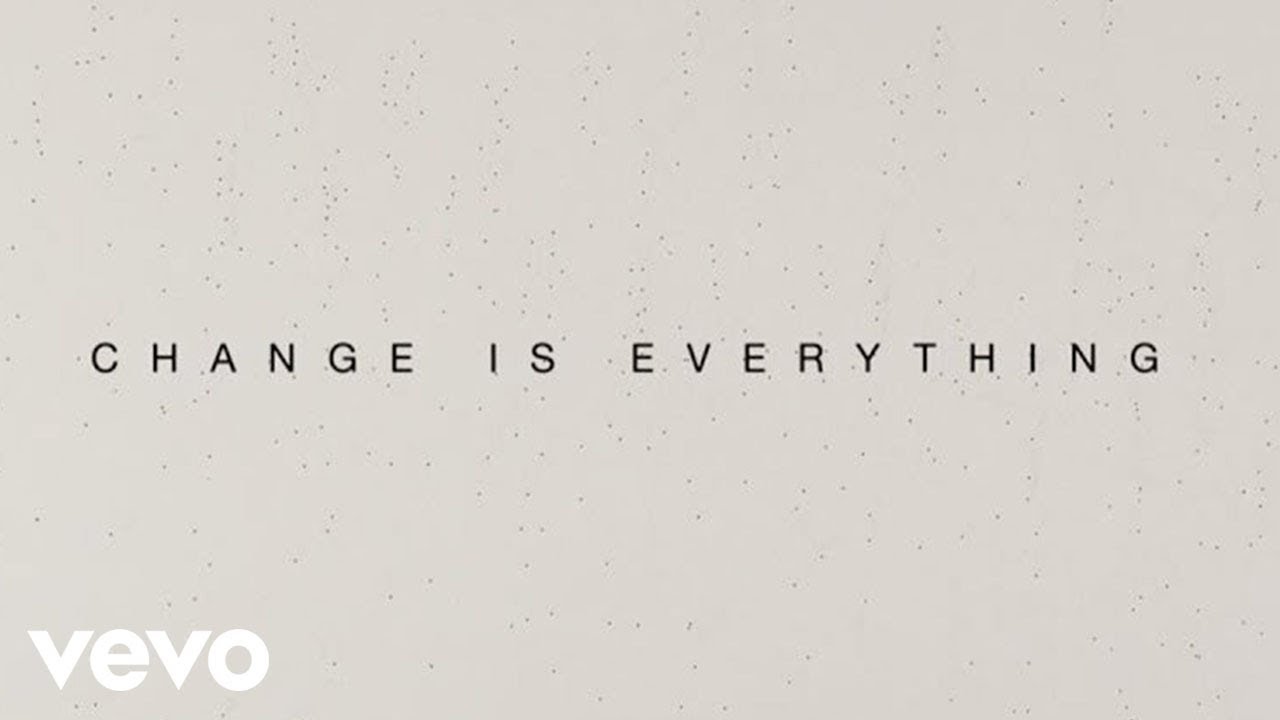
Andra: How do you think musicians and artists in general can grow old without becoming a cliche of themselves?
Ian: A lot of it has to do with what Rafiq was talking about earlier about the boxes artists need to be put in, in order to be consumed. And I think especially when you've found a certain amount of success it can basically define your career for the rest of your life. But it also has to do with what I was saying about the non-linear progression for an artist. If you have a family to raise, 20 years later you may be playing the same damned songs that you don't give a shit about, but they pay the bills. That's the harsh reality. In terms of how to continue to grow and still exist, that's something I hope to do with my life. It's also very scary. Some artists grow in value over time, and others depreciate over time, depending on the kind of music they make. It's not necessarily the case for Sun Lux, but when youth is a part of your brand, what do you do when you get older? You can do the same shit, like some 40-year-olds, who are still touring, playing the same music for other 14-year-olds. It's something that I'm fearful of in my life. We once interacted with a musician from Crowded House, who actually wrote this song, Don't Dream it's Over. And he was talking about how culturally ingrained in ourselves is this thing that once you get old, you lose inspiration, you become jaded or whatever. And he said that at one point in my life I decided to just let that notion go. Fuck that, I'm gonna keep making music. I don't know the answer, but the question is always on my mind.
It's also the fact that there's almost no way for the fifth album to be as exciting to me as the first. You can't hear every album like out of a black hole - although I wish I could, because I could say Wow, this is just fucking amazing! But by the third album, and especially as people who study music and understand the language, we see the patterns way sooner and realize if the magic is gone, even if for the people it's not. It's a tricky thing to age with music.
Rafiq: I feel like this has been a longstanding fear of mine. Being a fan of music when I was young and seeing bands that I admired going soft was like... (he laughs). I think one thing is that it's really difficult to reinvent yourself even when nobody cares what you're doing and there's no pressure to keep doing what you're doing. I went to something like this personally with my own music, where I was making music in a certain way, but I wanted to go in a different direction. And there was no pressure at all, because nobody really cared if I kept doing that or not. But there was this realization, that I'm not even that old and the idea of reshaping the way you do things and taking the things that you're good at and casting them aside, while forcing yourself to make music in a way that's completely alien to you, and finding yourself inside of that alien surrounding, is a really difficult thing to do. And as the pressure amounts, it doesn't get any easier. And as you get older and more set on your way, it doesn't get any easier.
While I certainly don't claim to have the answer to this question, and I'm constantly preoccupied with finding it, I will say that getting into the discipline of making reinvention a core of your artistic identity long before anyone has picked up on it, means that if you are fortunate enough to be somebody that people start to expect things from, what they will expect of you will be for you to continue to reinvent things.
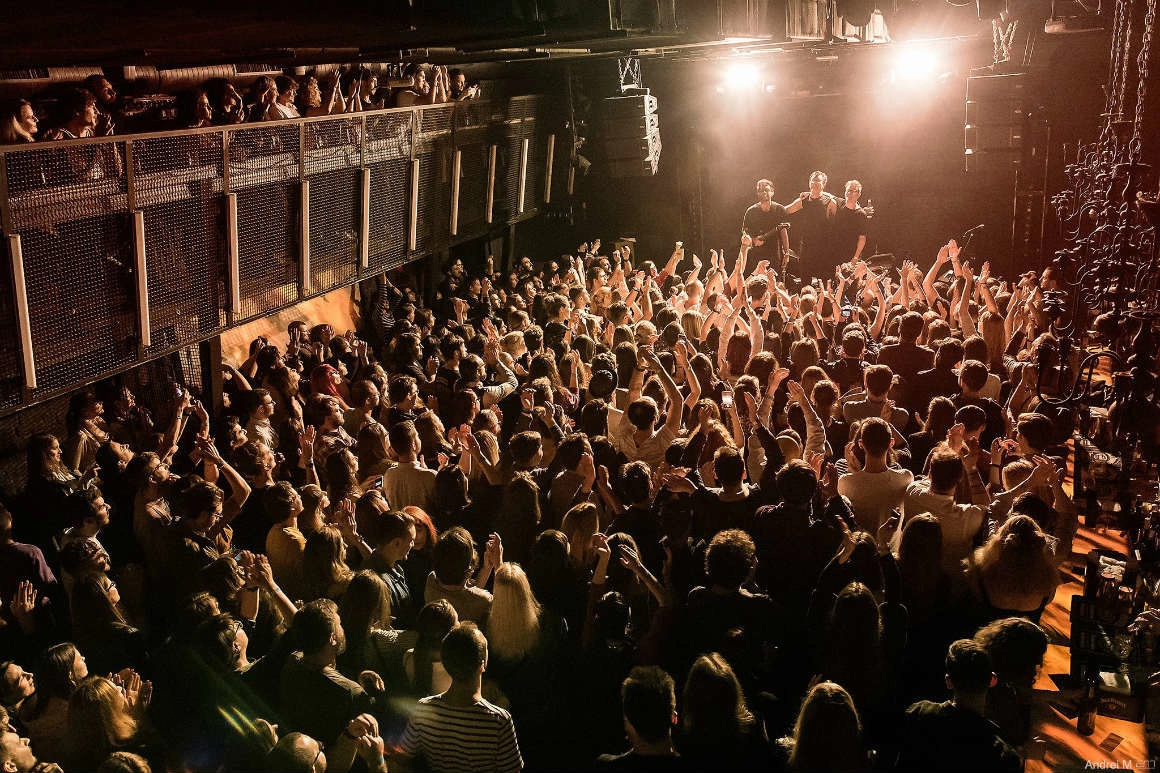
Ryan: I think Radiohead is my perfect example of that. By the time I started listening to them, they had already shifted gears four or five times and that was who they were. They were and are explorers. I think there are very rare examples that continue to evolve in interesting ways. At least for me, if God allows me to live a longer life and make music for the duration, I have a pretty strong hunch that has something to do with constantly putting myself in a position of learning from people who are younger than me. Because I think by the way the brain develops and the eyes open to the world, there is an inherent sensitivity to things that as we get older, we can't have that unless we get it from them. I think it's important to respect what came before, but also to respect what's coming. And I do see some icons of music who are constantly surrounding with young people - David Byrne is a great example.
Rafiq: But even when people do shit where it feels like they're doing exactly the same thing they were doing 20 or 30 years ago, it's often successful because it is informed to some extent by what's happened afterwards, but in a way that's so subliminal, that you don't notice it because the context around them has changed in such a way that what they're presenting feels the same, but it actually is different. Like the records of Johnny Cash, which feel like some essential core of Johnny Cash, but it doesn't feel like Johnny Cash trying to be a younger him.
Ian: As a conclusion, for the most successful, the way to evolve and change over time, to stay vital, you shouldn't do stuff that's different for the sake of being different. I've seen bands do this a million times. Like here's an aesthetic that I'm just gonna figure out and switch to, but it doesn't work like that.
Ryan: So the answer is we have no idea.





